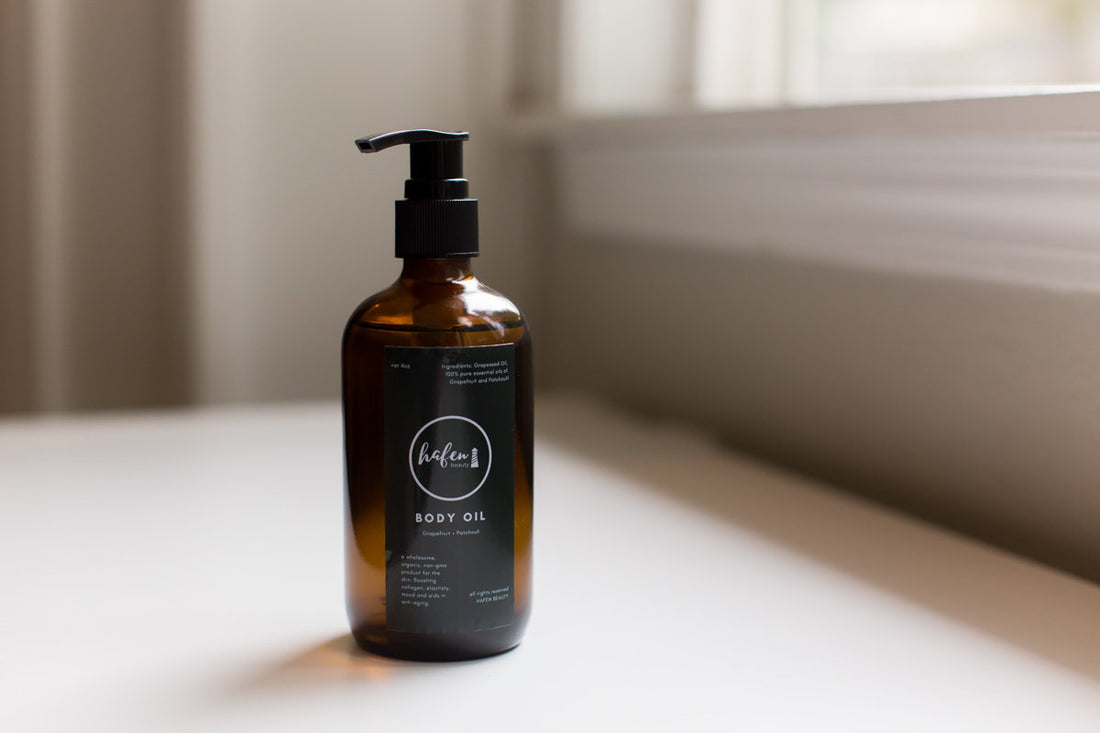
The winter months don’t just bring cold temperatures, they bring a host of ways that potentially affect our immune system. Our immune system plays a vital role on our health which not just affects our bodies, but our precious outer layer of skin as well. It’s this time of year we turn to taking more supplements and eating more nourishing foods fueling us with vitamins and minerals that the cold depletes from our system.
Welcome to the season of Vitamin C. This vitamin is great for supporting the immune system and great for keeping away the dreaded winter itch. Vitamin C hydrates and nourishes the skin. It is known to be an anti-oxidant as well as anti-inflammatory. Many individuals have used it to help with skin tone, soothe acne, or to get that radiant complexion we all envy.
Another important mineral is collagen. Collagen is currently holding your body together. No, literally, it’s the most prevalent protein in your body—found in your skin, muscles, tendons, and bones—that forms a frame of stability and structure. Vitamin C is a key ingredient in collagen. So the more your body receives, internally and externally, the more collagen your body produces. More collagen means fewer signs of aging, and all the other vitamin C and collagen benefits.
How To Absorb Vitamin C
Vitamin C is a necessary nutrient for a variety of functions, including fighting free radical damage, collagen production and stimulating a healthy immune system. Vitamin C is found in a variety of fruits and vegetables, most notably oranges, kiwis, leafy green vegetables and bell peppers. Supplemental vitamin C is also easily available at pharmacies and health-food stores. There are four ways to absorb vitamin C, they are: orally, injections, bioflavonoids, or topically.
When To Apply Vitamin C
Vitamin C is an antioxidant, with the purpose of fighting off free radicals. A common skin care routine mistake is applying vitamin c at night, instead of the day. Using Vitamin C during the day will protect the skin during our active hours when the sun, or blue light exposure is more prevalent. Vitamin C is most commonly diluted with a lighter carrier oil which should be applied before the rest of your skincare routine in order to get the most benefits from the vitamin.
Vitamin C For Eczema
Eczema is a common skin condition that flares up in the colder months. This may be caused by food intolerances, ingredient disturbances in detergents, or dry air. excemaliving.com states that Vitamin C is an ascorbic acid, that helps improve the formation of collagen in our skin. It helps to heal wounds faster and works as a natural antihistamine that destroys the imidazole ring of the histamine molecule.It is recommended to have extra vitamin C in your diet if you have eczema so that it is helpful to get rid of atopic eczema. In addition, vitamin c possesses antioxidants that protect you from free radical damages. Oral supplements of vitamin C are available if you want to try. Higher intakes of dietary vitamin C has been correlated with a decreased level of dry skin, and ascorbic acid may have effects on trans-epidermal water loss.
Supplementing Vitamin C Topically
Supplementing with Vitamin C topically has been a science-backed and dermatologist favorite ingredient to slow signs of aging in the skin, as well as boost the immune system internally.
What is applied to the skin can be found in the bloodstream, seconds to minutes later. Applying vitamin C topically allows your body to get the immune-fighting compounds a bit quicker than having your digestive system go through the process of breaking down the food you eat to get it. Using a Vitamin C Serum or Full Body Moisturizer after you bathe is a great way to support your health all day long. Vitamin C partnered with Ferulic Acid from grass-fed tallow has been proven to decrease inflammation and protect the skin from sun exposure as well as harmful blue light from our iPhones, tablets, and smartphones.
Vitamin C As An Exfoliate
Vitamin C is known as a jack of all trades. Besides giving the plump and youthful skin we all admire, it can also be used as a gentle exfoliant no matter what carrier oil or product it’s in. We are all affected by air pollution and harmful blue light, vitamin c attaches to free radicals in and on our skin and supports detoxing them out of our system. Using a vitamin C serum or Body Oil as a gentle cleanser will exfoliate your skin from those harmful toxins. Apply a little vitamin c to the tips of your fingers and rub all over your face. When your face is covered use a warm washcloth to wipe it off. Finish with rinsing your cold water and then pat try. Your face will feel fresh as well as moisturized. Continue with your skincare routine.
Summary:
Vitamin C is an essential vitamin our body needs for overall immune function and for glowing hydrated skin. You can supplement with vitamin c in many different ways including orally, topically, injections, or through bioflavonoids (what you eat). Vitamin C protects our skin from free radicals through pollution or harmful sun exposure and blue light. You can use vitamin c as a gentle exfoliant by using it as a cleanser prior to your skincare routine. Vitamin C is a beneficial vitamin for keeping winter skin away and for eczema relief. Because we lose collagen levels by 1% every year it’s important that we supplement with vitamin c to continue producing collagen at higher levels. Absorbing Vitamin C through the skin will allow a quicker support time for your body to get the effects of the vitamin.

